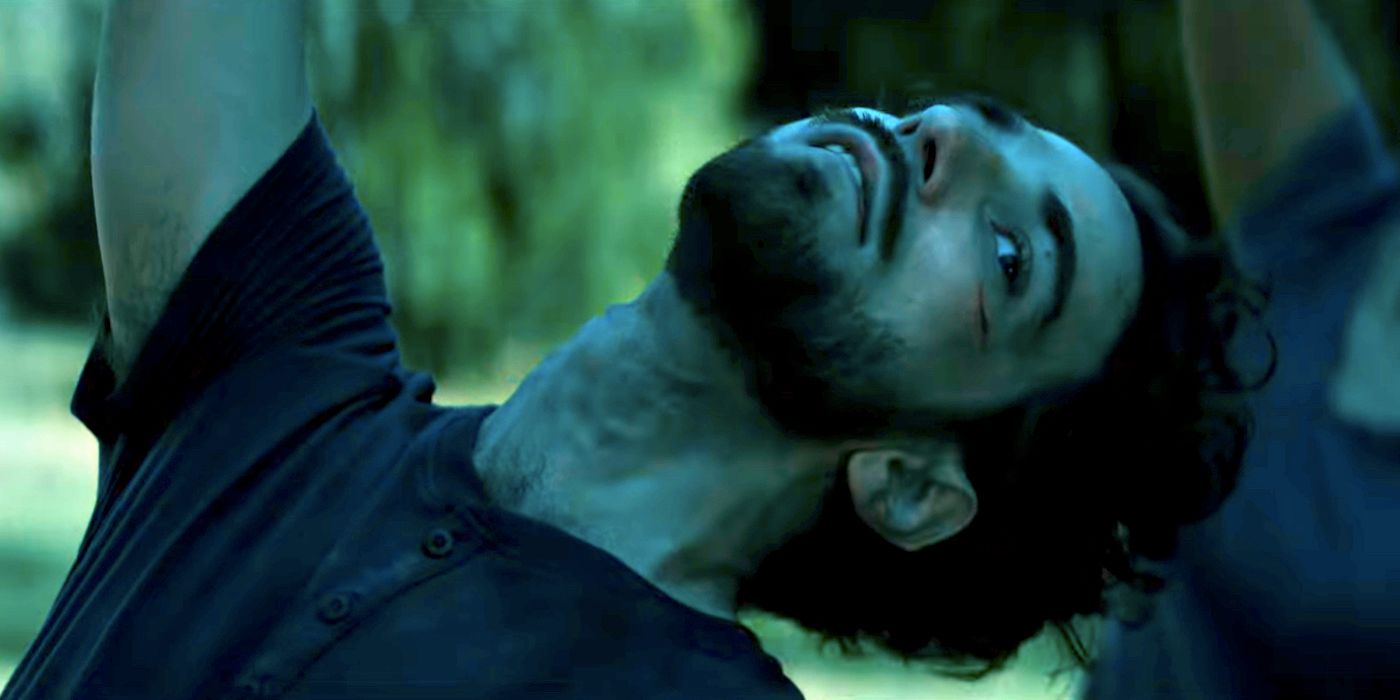Warning! Spoiler ahead for No One Will Save You.
The script page for No One Will Save You‘s grossest scene has gone viral, and its odd presentation proves just how unique writer/ director Brian Duffield’s vision was from the beginning. Released on Hulu on September 22, the alien invasion thriller stars Kaitlyn Dever as Brynn, a lonely woman who must defend herself after a malevolent extraterrestrial force breaks into her house. The movie has earned positive reviews from both audiences and critics, earning particular praise for its unique approach to both home invasion thrillers and alien movies.
Now, as chatter online regarding No One Will Save You‘s ending, aliens, and near-wordless presentation continues, Duffield has reposted a tweet from PDF Screenplays, sharing a page from his script. Check out the tweet below:
The scene in question, one of the movie’s grossest, features an alien using telekinesis to insert a small, bug-like glob into Brynn’s mouth in order to gain control over her. What’s so interesting about the script page, however, is Duffield’s sheer disregard for traditional screenplay structure, with the repeated phrase “shecantmove” used in lieu of spaces or proper sentences to signify Brynn’s continued immobilization.
Why No One Will Save You’s Script Page Is So Unique

Much like how novels have certain formatting guidelines to ensure a degree of uniformity and ease of comprehension, screenplays traditionally follow their own sets of rules for similar reasons. When it comes to screenplays, however, formatting is also crucial because, unlike a novel, which is itself a final product, a screenplay is more of a blueprint for a final product.
By adhering to certain formatting rules, such as margin sizes and spacing, the transition from script to screen is made simpler. Following these traditional guidelines generally makes it easier to do script budget breakdowns and calculate runtimes, with one page usually equaling about one minute of screen time. It’s the importance of these industry-standard guidelines that has led to some interesting discussion regarding Duffield’s script page on Twitter among other writers.
While Duffield himself admits in a reply that he “always gets in trouble for this s—t,” ultimately, as a writer/ director, Duffield has more freedom and can get away with breaking traditional screenplay rules, much in the same way someone like Quentin Tarantino can. A writer working on spec or on assignment, however, would almost certainly not be able to get quite as creative with structure and formatting. While opinions may differ regarding just how acceptable the script page in question is, it certainly speaks to No One Will Save You‘s unique and surprising approach to some familiar genres.




